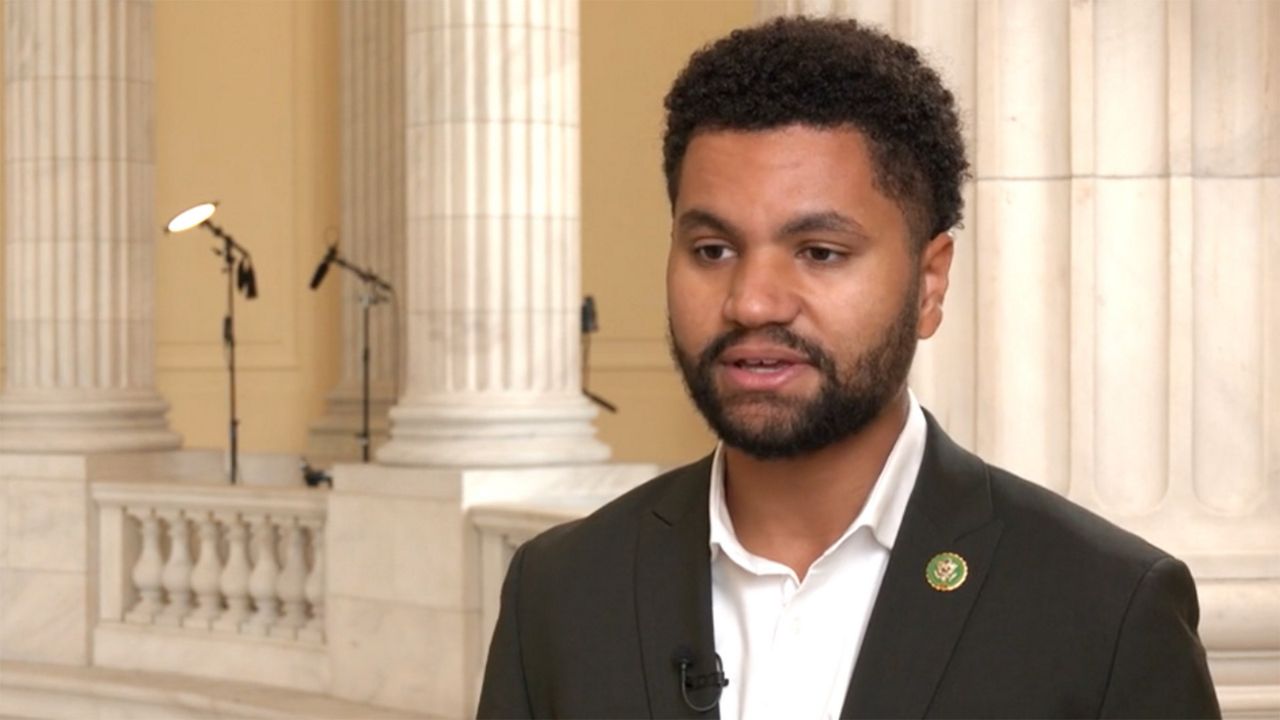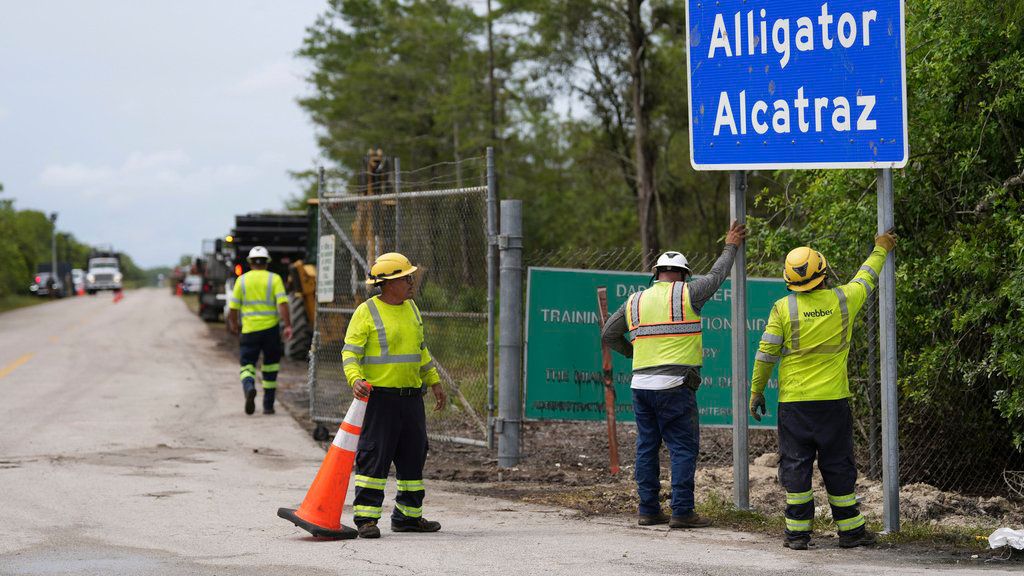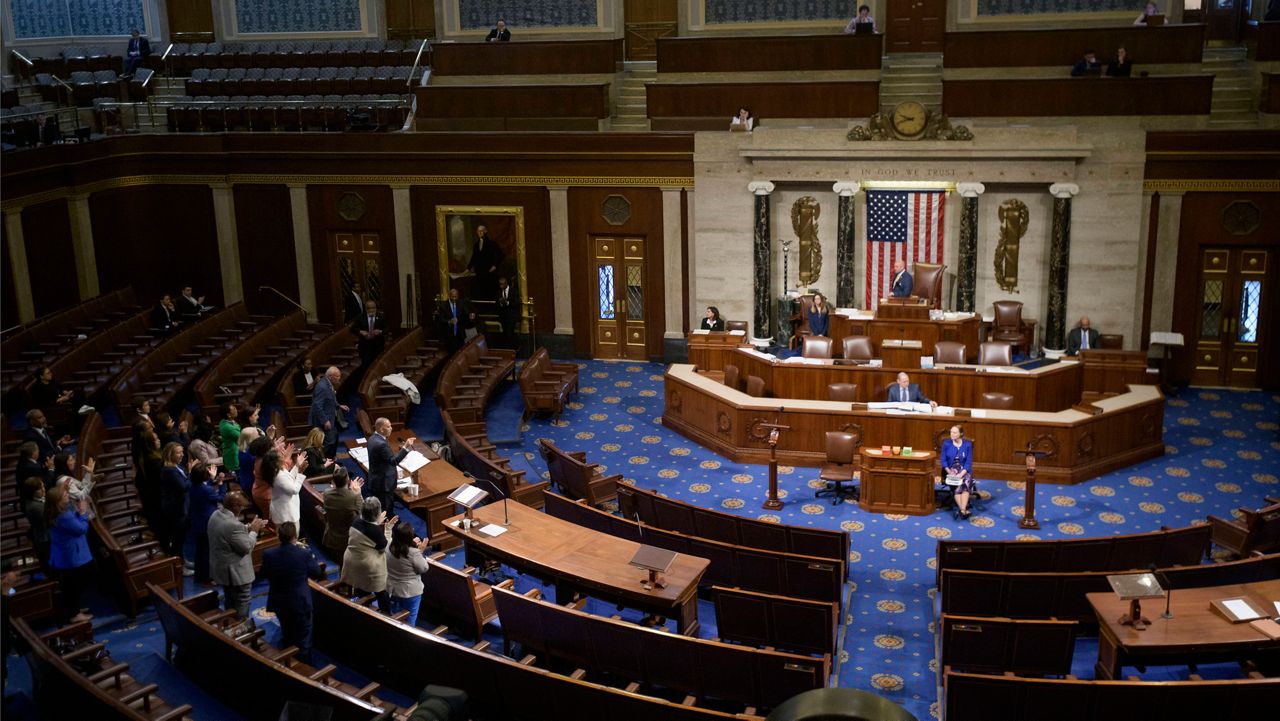President Donald Trump has announced a budget proposal with substantial cuts across the board, and Florida lawmakers prepare to end this year's legislative session without a spending plan.
White House asks for $163B in cuts to non-defense spending and boosts in defense, border funding
The White House is proposing a budget for the federal government for the next fiscal year that would spend the least amount on non-defense programs since 2017, or 2000 when adjusted for inflation, a senior Office of Management and Budget official told reporters on a call on Friday.
It comes as the administration looks to implement sweeping cuts to items such as foreign aid, diversity, equity and inclusion initiatives, climate change measures and more in tandem with its far-reaching government downsizing campaign carried out by the U.S. DOGE Service while, at the same time, boosting funds going to defense and the border.
The official called the proposal “a pretty historic effort” to “deal with the bureaucracy that we believe has grown up over many years to be entrenched against the interests of the American people.
“We don’t think we knew the extent of the wastefulness, and DOGE has helped shine a light on that,” the official added.
The $1.7 trillion discretionary budget, which is not law but serves as a guideline and touchstone for Congress as it works out the legislation to set government spending in the 2026 fiscal year starting Oct. 1, asks for $557 billion in non-defense discretionary spending, marking a 22%, or $163 billion, cut from the current fiscal year, the OMB official said.
On the other hand, it calls for a 13% increase in spending on national defense, while the Department of Homeland Security, the foremost agency dealing with border security — a major priority of the president’s — would see a 65% increase. The official touted the budget as allowing for “historic levels” of Immigration and Customs Enforcement agents, Customs and Border Patrol officials, dollars to continue building a border wall and more.
Final day of Florida legislative session arrives with no budget agreement
Friday, May 2, marks the last scheduled day of Florida’s legislative session.
And it arrives with no budget passed.
That means lawmakers will have to meet again, but right now there is no word on when that will happen or how it will work.
Florida law requires state lawmakers to pass a balanced budget by July 1.
The House and Senate are about $4.4 billion apart on their proposals.
Both Republicans and Democrats say they're hopeful a measure will be passed soon.
"I’m confident we'll get it done,” said State Rep. Fentrice Driskell (D) Tampa. “But this is not quite how I'd like to see things done."
The Senate is advocating a $117.4 billion spending plan, potentially including sales tax cuts on certain clothing purchases.
The House is proposing a $113 billion plan, with potential cuts to the state's sales tax from 6% to 5.25%.
Gov. Ron DeSantis is suggesting a $115.6 billion budget. His budget includes potential cuts to state spending and a proposed reduction in the state's sales tax.
“We continue to have productive conversations with the House,” said Senate President Ben Albritton (R) Bartow. “And we're putting together a framework for a budget and I'm optimistic we'll have more news to share very soon.”
State Rep. Anna Eskamani said Tourist Development Tax reform, which would provide more flexibility for use in Central Florida, is at least one topic both the House and Senate included in their tax packages.
"I do think that local control on the TDT is important and it would allow for us to invest in infrastructure that is so desperately needed," she said.
While it's unclear if those proposed changes will be implemented, she said she's optimistic Central Florida could see some positive impacts.












